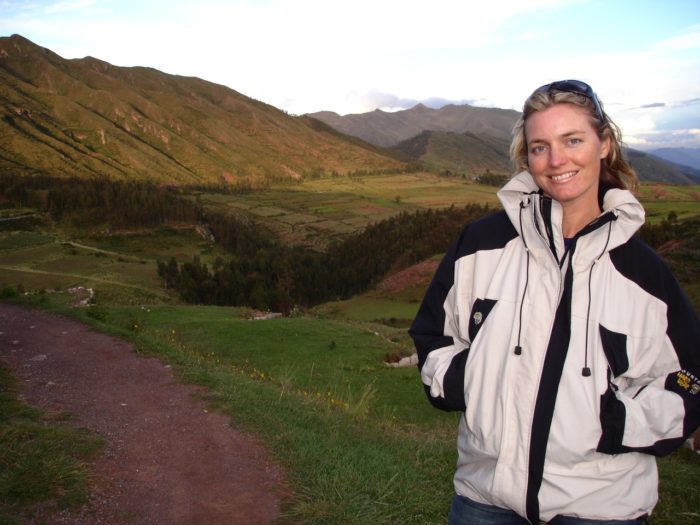Why aren’t there more natural history documentaries in Australia?

“YOU CAN’T help but feel that surely with this kind of feedback, the ABC will start investing more in natural history documentaries,” says Tosca Looby following the huge number of positive comments she’s received after the premiere of the Magical Land of Oz, the new three-part documentary series she wrote and directed.
“It took us 18 years to get something like this on air and we don’t want to wait another 18 years,” says Karina Holden, an executive producer on the series. Both Tosca and Karina are alumni of the ABC Natural History Unit, which was shut down in 2007.
This has made The Magical Land of Oz a landmark series. Covering Australia’s vast oceans, land and cityscapes, the series is an Australian interpretation of our natural history. To top it off, it’s narrated by Barry Humphries. But it wasn’t easy to get it on air.
“It took us longer to get that deal together than it did to make the program,” Tosca says. “the ABC were persuaded to sign up for something that seemed an incredibly safe bet – it was a BBC co-production so in theory, a known quantity.” Each year, the famed BBC Natural History Unit produces upwards of 50 hours of television and 100 hours of radio every year.

Karina Holden, one of the executive producers of The Magical Land of Oz.
Karina says that there are hardly any genres on Australian TV other than reality nowadays, and it’s difficult for any specialist programs to get a look in. “We are in a new era where there’s so much competition with streaming services, that free to air can only compete by putting up gladiatorial reality shows that resemble sporting competitions and are ‘must-watch’,” she says. “Anything that isn’t ‘live’ or competitive gets crushed.”
The closure of the ABC Natural History Unit sparked an immediate downturn in natural history programming, even though the decision was initially welcomed by independent filmmakers.
“People in the independent sector were making the argument that the unit was using up all the commissions,” Tosca says. “The decision to close the unit came about at the same time that a lot of ABC stuff was being outsourced.”
Tosca sympathised with the arguments made by the independent sector. However, the closure of the unit didn’t result in more natural history documentary commissions, which Tosca puts down to there being no one championing those types of programs. “There’s no longer a Dione Gilmour”
Dione was the head of the ABC Natural History Unit for over three decades and mentored both Tosca and Karina. “She was a real powerhouse,” Tosca says. “And she really convinced all the managing directors that it was something worth investing in.”

Tosca in the field working on The Magical Land of Oz with rock wallabies. (Image credit: Ralph Bower)
In search of experience and paid work, many talented, young natural history documentary makers head to Bristol to work for the BBC Natural History Unit and the UKs strong independent natural history sector due to lack of opportunity in Australia. Tosca made this inevitable career move, but eventually wanted to come home and make programs about Australia.
In 1997, Dione gave her a job at the ABC. “There was actually a job freeze across the whole of the ABC because the funding had been cut, but Dione said ‘I don’t care’. She just ran her own show. It was amazing to be in a department like that.”
Many pioneers of natural history documentary making in Australia, unlike their British counterparts, have been women. “When you walk into a wildlife conference in Bristol you’re still very much a minority,” Karina says. “But the industry in Australia is small and when I look back at our industry our pioneers have been Dione Gilmour, Valerie Taylor and Tina Dalton, among other women.”
Both Karina and Tosca say that programs such as The Magical Land of Oz, which are told from an Australian perspective, are more important than ever. And the success of the new program will hopefully make it easier for other natural history documentary makers.
“Back at the natural history unit, we told stories about beautiful places in a pristine state, but now, we are responding to what we’re seeing in the field, which is obviously a lot of animals and places struggling because of human expansion and climate change,” Tosca says.
Keeping talented filmmakers in Australia to make these kinds of programs, according to Tosca, will come down to building a stronger industry that offers more opportunity. “I get contacted all the time and I have to tell people that nothing is happening. I would love to mentor a new generation of documentary makers because we need these stories to be told.”
Karina isn’t convinced that the ABC Natural History Unit will ever be re-created, but she’s hopeful that the ABC will be more interested in broadcasting documentaries like such as The Magical Land of Oz. “We’ll definitely keep knocking on their door,” she says.
The final episode of The Magical Land Oz, which focuses on wildlife in our cities, will air this Sunday at 7:40 PM on the ABC.
Australian Geographic is published by Northern Pictures.




